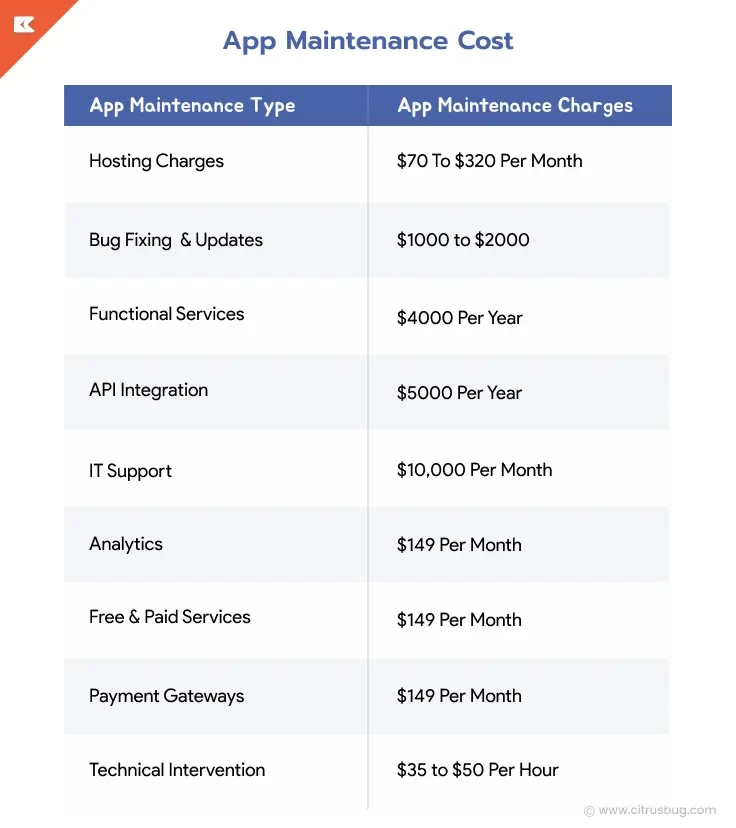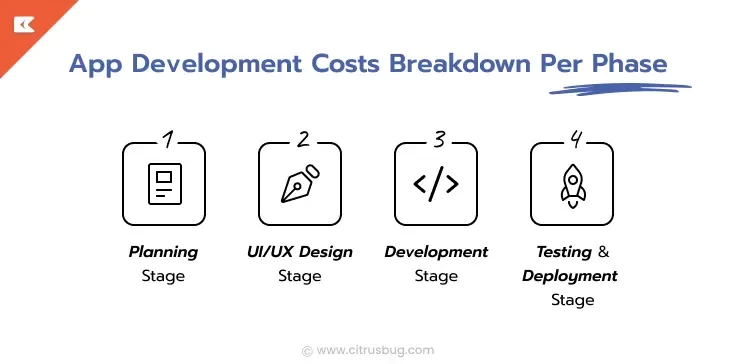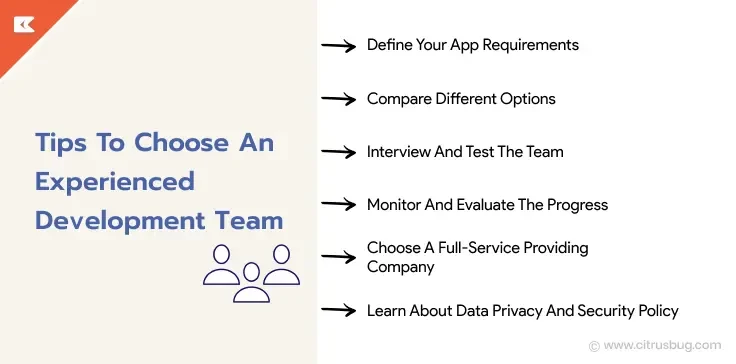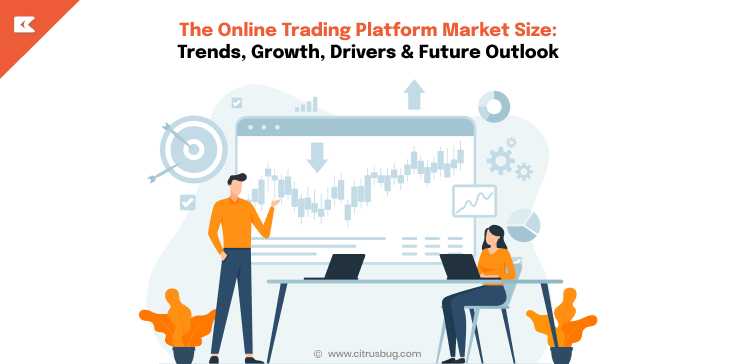What is The Cost of Creating an App? A Comprehensive Guide
- November 24, 2023
-
3841 Views
- by Ishan Vyas
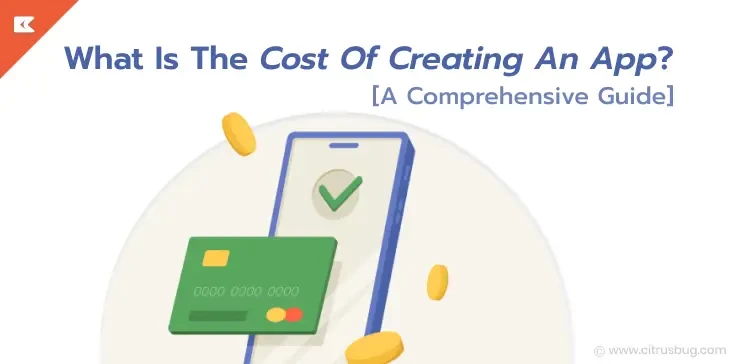
The cost of creating an app = (number of features complexity time) * hourly rate.
However, there are several other factors such as region, development experience, platform, technology, post-development maintenance, marketing, etc., that add up to the final cost of your application.
Depending on these factors, the app development cost can range from $40,000 to $300,000 or more.
And, in this blog, we will cover the factors affecting the cost of mobile app development along with tips to save a few bucks.
Let’s start with the basics.
How much does it cost to build an app?
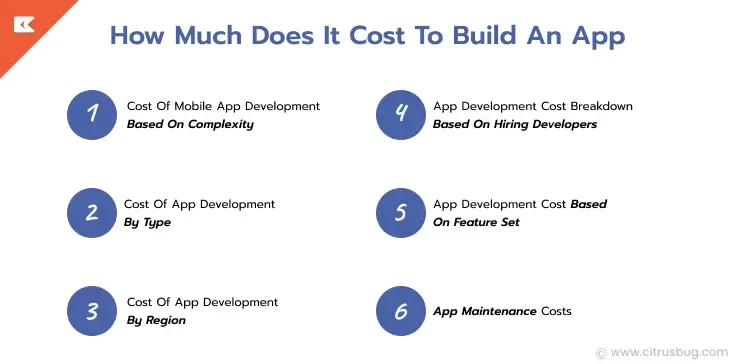
The cost to create an app can vary from $10,000 to $500,000 or more, depending on several factors, such as the app’s complexity, the platforms it will run on, the features and functionalities required, in addition to the developers’ location. Here’s an in-depth evaluation:
1. Cost of Mobile App Development Based on Complexity
The cost of developing an app is a dynamic interplay of complexity and design.
1.1. Complexity level of app development
The app’s complexity significantly shapes its cost and development timeline. Simple apps, offering essential features, wrap up in 2 to 4 months. Mid-level apps, with integrations and real-time messaging, typically take 6 to 10 months. Meanwhile, complex apps, packed with multi-functions like real-time synchronization and chatbots, can stretch the development process to 8 months or more, leading to higher expenses.
1.2. Complexity of app design
Design is an integral part of the app development process, impacting costs. User Experience (UX) design strives to create an intuitive interface, influencing development expenses. A more engaging and intricate design drives up costs.
User Interface (UI) design shapes the app’s visual elements, affecting its appearance and MVP design costs. Diverse app types demand specific design solutions.
Branding, vital for marketability, affects development costs. Initially, controlling branding expenses is prudent, with the option to scale up as the app gains traction.
UX writing, involving compelling website copywriting, is crucial for user engagement. The cost of hiring a copywriter should be included in the overall app development budget.
2. Cost of App Development by Type
The type of app you develop affects the final budget.
For example, native apps involve creating an app for a particular platform like Android or iOS. The cost of which can range from $5000 to $500,000.
Hybrid development creates an app that can run on multiple platforms with minimal changes. As the single-code base reduces the development time and cost, the cost can range from $5000 to $90,000.
If you’re looking for a PWA development, it may cost you from $5000 to $15000 depending on your requirements.
Further, the app categories can add additional complexity and costs such as:
3. Cost of App Development by Region
Different regions have different rates for app developers, depending on the level of expertise, demand, and competition. If you’ll try to go around asking where I can find app developers near me? You’ll get many references. In general, the developers in North America and Western Europe are more expensive than Asia and Eastern Europe. Here are the average hourly rates for app developers in different regions:
We can add the below rates in the image just like this one – reference
- US and Canada: $50 to $200 per hour
- Australia: $50 to $150 per hour
- Western Europe and the UK: $50 to $160 per hour
- Eastern Europe: $35 to $150 per hour
- India: $10 to $80 per hour
However, it is crucial to understand that the hourly rate will differ depending on the complexity, and the specialists’ skills, seniority, and qualifications.
4. App Development Cost Breakdown Based on Hiring Developers
Different hiring options – outsourcing, hiring in-house developers, or working with freelancers, and experience levels, can affect app development costs.
For instance, experienced and skilled developers are more expensive but ensure higher quality. Less experienced developers are cheaper but may produce less polished apps.
Here’s how hiring options can affect the development cost of your app:
- Hiring In-house developers is expensive. The average salary for an app developer in the US is $116,159 per year.
- Freelancers are a cost-effective option for smaller projects or specific expertise. The average hourly rate for a freelance app developer is $25 to $60.
5. App Development Cost Based on Feature Set
Hard truth: the more features you want in your mobile app, the higher the cost of developing it will be.
Some examples of feature-specific app development costs include:
- Basic push notifications add $1,500 to $2,500, while custom ones might reach $4,000 – $5,000.
- User profiles cost around $2,400, social login integration about $500 per network, and localization around $500.
- Developing chat can range from $2,400 (SDK) to $12,000 (custom).
- Integrating ads cost $1,600 – $2,000, analytics around $2,000, and feedback platforms vary.
- Tablet UI optimization can increase expenses by up to 1.5x. Supporting both portrait and landscape modes raises the budget by 30%.
- Developing outdated OSes or devices can double the app cost. Implementing offline mode with cross-device sync costs $8,000 to $12,000.
6. App Maintenance Costs
The cost of building an app is not a one-time investment. Continuous maintenance, updates, and enhancements will also require extra time and resources.
The general rule of thumb is that app maintenance can cost around 15 to 20 percent of the total development cost. This means, if your app cost is $100,000, your app maintenance would be around $15000 to $20000.
Here’s the estimated app cost based on maintenance choices:
App Development Costs Breakdown Per Phase
Developing a thriving app is intricate. It involves four key phases: Planning, Design, Development, Testing, and Deployment.
Each stage is vital and influences the app’s overall triumph. The image below illustrates cost distribution across stages, with the development process being the most expensive, explained later.
1. Planning Stage
Investing in the planning phase of app development is essential for success. Costs vary depending on complexity.
For basic apps, a small team may incur about 10% of the total project cost. In contrast, complex apps like mobile banking apps demand a more substantial investment.
This phase, which includes extensive research, typically costs between $5,000 and $25,000, spanning 2-5 weeks. Thorough planning is key to preventing costly changes and ensuring the app’s triumph.
2. UI/UX Design Stage
Investing in a strong design phase for your app is essential. It typically accounts for around 15% of your total development costs, but it’s a critical step that can’t be overlooked.
Experienced UI/UX designers are key to this phase. They shape how your app functions, plan user scenarios, visualize features, and create a prototype, allowing you to see and feel your app’s potential before coding even begins.
While costs can vary, starting at $5,000 and possibly exceeding $50,000, it’s crucial to recognize that this investment sets the foundation for your mobile app’s success.
3. Development Stage
In the development stage, the app comes to life through coding, debugging, and feature integration. Several factors influence the time and cost here, such as feature complexity, target platforms, and the expertise of the development team. Roughly, this phase consumes about 60% of the total app development cost.
As you can see, these factors can significantly sway the final price. For small business apps, costs range from $40,000 to $120,000, while complex apps can start at $200,000 and surpass $500,000.
The cost of app creation also encompasses testing and deployment stages.
4. Testing and Deployment Stage
Once coding is complete, modules undergo rigorous testing by QA engineers to ensure they meet project requirements. If the app aligns with client expectations, it’s released to end users.
Testing costs depend on feature complexity, tools, and team size. As for deployment, platform choice and strategy can affect costs. Roughly, testing constitutes about 10% of total app development cost, while deployment is around 5%.
It’s important to note that the investment doesn’t end with app development. Backend operations, legal, and marketing will also require additional time, cost, and resources.
Hidden App Development Costs
Functional, admin or management, infrastructure, support charges costs, etc. add up to the answer how much does it cost to build an app in 2023?
Suppose, it costs $90,000 to develop the app initially:
- Functional costs could range from $5,000 to $20,000 per year, depending on integrations.
- Maintenance typically accounts for 20% of the initial development cost, amounting to $18,000 annually.
- App marketing may range from 50% to 100% of the initial app development cost, totaling $45,000 to $90,000 per year.
1. Marketing Costs
The app marketing cost is a vital expense required to promote your mobile application effectively and reach your target audience. It’s a separate budget covering activities like app reviews, ASO, social media, and an app trailer.
Aim for a marketing budget 2 to 3 times your initial development cost. For example, if development costs $100,000, budget $200,000 to $300,000 annually.
This budget covers various aspects like social media and search engine ads, sales funnels, landing pages, copywriting, PR, CRM tools, and affordable email marketing software.
2. Backend Costs
A well-functioning backend is essential for your mobile app’s success. Whether it’s fetching data or user communication, a server component is often necessary.
Costs for this backend infrastructure can range from $6,400 to $28,000, with options like Firebase and AWS providing robust solutions. This investment ensures your app operates smoothly, going beyond a user interface to deliver efficiency and reliability.
Firebase mobile app development is a popular option for building cost-effective and scalable mobile apps. Firebase by Google offers a suite of tools and services that can help you develop your app faster and easier while controlling costs.
3. Legal Costs
Legal costs are often underestimated but are essential.
Safeguard your intellectual property with well-crafted Terms and Privacy Policy documents, using customizable templates. A privacy policy generator can simplify this process, ensuring your documents are up-to-date and compliant.
Also, if you plan to distribute your app on platforms like Apple’s App Store or Google Play, remember there are fees for app submission, updates, and hosting.
Protecting your legal interests from the start can be invaluable as your app gains traction.
Examples of App Development Cost
Here are the costs and returns of famous brands in the mobile app world:
Investment vs. Revenue (Examples):
- Uber: Invested $200K, and made $8.6 billion in 2022.
- Instagram: Started with $500K, generated $51.4 billion in 2022.
- Tinder: Raised $485K, and earned $1.79 billion in 2022.
- Postmates: Secured $750K, brought in $730 million in 2021.
- Snapchat: Began with $485K, and reached a massive $4.6 billion in revenue in 2022.
These real-life stories highlight that app development costs vary based on the idea, features, tech, and market. But, they also underscore that smart investments in well-designed, well-developed, and well-marketed apps can lead to substantial returns.
For reference (Development Costs)
- Uber-like app: $63,000 to $150,000.
- Netflix-like app: $50,000 to $250,000.
- Instagram-like app: $100,000 to $300,000.
- TikTok-like app: $50,000 to $300,000.
So, if you follow similar models to these successful apps, you can estimate the potential costs to create your own app. Remember, the investment can pay off big time if you do it right.
Don’t forget the below tips to cut down on the costs.
How to Reduce Your App Development Cost?
If your app development cost is too high, you have two options:
- Find a cheaper IT provider, but risk getting low-quality work.
- Stick with your current team, and
Explore the following ways to reduce the cost:
- Build an MVP: Test your app idea with the essential features and get feedback from real users.
- Keep UI/UX simple: Make your app look and work well with a user-friendly and consistent design.
- Use third-party APIs: Access ready-made features and functionalities from other platforms or services, such as Google Maps, Facebook Login, Stripe Payment, etc. Choose reliable and well-supported solutions that suit your needs.
- Access mobile-specific features: Enhance your app with features that are native to mobile devices, such as camera, GPS, etc.
- Optimize for scalability: Build your app to handle more users and features without compromising its performance and quality. Use scalable technologies and infrastructure, such as cloud-based solutions or microservices architecture, to help your app grow over time.
- Plan for updates and maintenance: Keep your app running smoothly with ongoing updates and maintenance. Use a modular development approach, where individual features can be updated or replaced without affecting the entire app, to make future updates more cost-effective.
- Work with an experienced development team: Find a team with a proven track record of building successful apps within your budget. Choose a development partner who can provide end-to-end services, from design to maintenance and updates, to save time and money.
Tips to Choose an Experienced Development Team
To choose an experienced development team, follow these tips:
1. Define your app requirements:
Know what you want your app to do, who your users are, what features and technologies you need, and what timeline and budget you have.
2. Compare different options:
Find and compare different development teams based on their skills, experience, reputation, rates, availability, etc. Use online platforms, referrals, reviews, portfolios, etc. to find the best match for your project.
3. Interview and test the team:
Assess the technical and soft skills, communication style, work ethic, problem-solving ability, etc. of the development team. Ask them to provide references or samples of their previous work. Choose a team that has relevant expertise, a proven track record, a compatible culture, and a flexible approach.
4. Monitor and evaluate the progress:
Provide timely and constructive feedback, address any issues or challenges, and celebrate any achievements or successes. Measure the quality and outcomes of the project against your predefined criteria and expectations.
5. Choose a full-service providing company:
Save time and money by hiring a company that provides comprehensive services for your app development project. This includes everything from design and development to testing, deployment, and ongoing maintenance and updates. Crowdspring can help you get started by connecting you with professional design experts who can create custom branding, app icons, and user interface designs that align with your development goals.
6. Learn about data privacy and security policy:
Protect your app’s data from unauthorized access, misuse, or loss. Check if the development team complies with the relevant laws and regulations in your country or region. Choose a team that has strong data privacy and security measures in place.
Conclusion
Do you want to build your dream app? Do you need a reliable and experienced development team? Do you want a full-service company that can handle everything from design to maintenance?
If yes, contact us today. We are a leader in app development, and we can help you create a successful and scalable app at a low cost. We have a proven track record, a strong data privacy policy, and a passion for your success.





 SaaS Development
SaaS Development Web Application Development
Web Application Development Mobile Application Development
Mobile Application Development Custom Software Development
Custom Software Development Cloud Development
Cloud Development DevOps Development
DevOps Development MVP Development
MVP Development Digital Product Development
Digital Product Development Hire Chatbot Developers
Hire Chatbot Developers Hire Python Developers
Hire Python Developers Hire Django Developers
Hire Django Developers Hire ReactJS Developers
Hire ReactJS Developers Hire AngularJS Developers
Hire AngularJS Developers Hire VueJS Developers
Hire VueJS Developers Hire Full Stack Developers
Hire Full Stack Developers Hire Back End Developers
Hire Back End Developers Hire Front End Developers
Hire Front End Developers AI Healthcare Software Development & Consulting
AI Healthcare Software Development & Consulting Healthcare App Development
Healthcare App Development EHR Software Development
EHR Software Development Healthcare AI Chatbot Development
Healthcare AI Chatbot Development Telemedicine App Development Company
Telemedicine App Development Company Medical Billing Software Development
Medical Billing Software Development Fitness App Development
Fitness App Development RPM Software Development
RPM Software Development Medicine Delivery App Development
Medicine Delivery App Development Medical Device Software Development
Medical Device Software Development Patient Engagement Software Solutions
Patient Engagement Software Solutions Mental Health App Development
Mental Health App Development Healthcare IT Consulting
Healthcare IT Consulting Healthcare CRM Software Development
Healthcare CRM Software Development Healthcare IT Managed Services
Healthcare IT Managed Services Healthcare Software Testing services
Healthcare Software Testing services Medical Practice Management Software
Medical Practice Management Software Outsourcing Healthcare IT Services
Outsourcing Healthcare IT Services IoT Solutions for Healthcare
IoT Solutions for Healthcare Medical Image Analysis Software Development Services
Medical Image Analysis Software Development Services Lending Software Development Services
Lending Software Development Services Payment Gateway Software Development
Payment Gateway Software Development Accounting Software Development
Accounting Software Development AI-Driven Banking App Development
AI-Driven Banking App Development Insurance Software Development
Insurance Software Development Finance Software Development
Finance Software Development Loan Management Software Development
Loan Management Software Development Decentralized Finance Development Services
Decentralized Finance Development Services eWallet App Development
eWallet App Development Payment App Development
Payment App Development Money Transfer App Development
Money Transfer App Development Mortgage Software Development
Mortgage Software Development Insurance Fraud Detection Software Development
Insurance Fraud Detection Software Development Wealth Management Software Development
Wealth Management Software Development Cryptocurrency Exchange Platform Development
Cryptocurrency Exchange Platform Development Neobank App Development
Neobank App Development Stock Trading App Development
Stock Trading App Development AML software Development
AML software Development Web3 Wallet Development
Web3 Wallet Development Robo-Advisor App Development
Robo-Advisor App Development Supply Chain Management Software Development
Supply Chain Management Software Development Fleet Management Software Development
Fleet Management Software Development Warehouse Management Software Development
Warehouse Management Software Development LMS Development
LMS Development Education App Development
Education App Development Inventory Management Software Development
Inventory Management Software Development Property Management Software Development
Property Management Software Development Real Estate CRM Software Development
Real Estate CRM Software Development Real Estate Document Management Software
Real Estate Document Management Software Construction App Development
Construction App Development Construction ERP Software Development
Construction ERP Software Development






